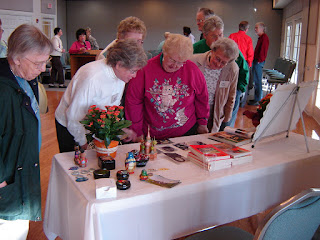Russian Music
From folk songs to symphonies, from lullabies to ballets, Russia's soul is expressed in her music. I used several references to music to immerse the reader in my stories. During Akulina and Massey's wedding feast described in Ikons: Saint Nicholas the Wonder Worker, the hall was fill with boisterous melodies shouted by the celebrants. Akulina sat stoically through the vodka infused celebration until Massey requested the manly Cossack tune, "Stefan Razin." That did it. Using her newly acquired wifely authority she whispered, "Not that. Sing 'Little Bells.'" Massey realizing the shift in family dynamics acquiesced and called for the sentimental tune, which today is still considered by many the most beautiful Russian song ever penned.
Little Bells
I used the haunting lyrics of "Little Bells" throughout my three novels whenever one of my characters would leave their homeland. It continued until the ultimate departure, the death of Boris.
Patriotic Music
Banners: For God, Tsar and Russia begins with the citizens of Hutava sending her sons off to battle accompanied by the stirring notes of a popular patriotic song, "Sing Little Nightingale." The villagers, led by old Telepnev's concertina, made up in volume what they lacked in tone. The rousing melody and festive atmosphere belied the disaster awaiting Hutava.
Sing Little Nightingale
After three years and millions of casualties, Russia's music shifted from patriotic to revolutionary. By 1917 her citizens paraded with a different song on their lips -- "The International." This clip from the 1981 movie "Reds" captures the heady optimism of the Russian Revolution when a socialistic future still held great promise. In my third book, Slogans: Our Children, Our Future, young Stepha learns to play "The International" on his concertina and leads "volunteers" to the planting and harvest.
The International
The new government is not embraced by all thrusting Russia into civil war. As Reds and White forces clash, another song replaced "The International."Song of the Red Army
Kataya's childhood friend Igor was conscripted into the Red Army and became an officer in the Konarmia, the feared Red Calvary. With Igor in the vanguard, the Konarmia cut a swath through enemy forces until its defeat on the banks of Vistula.
White Army, Black Baron
The military song, "White Army, Black Baron," was sang by the Komarmia during their march and heralded the coming of their 100,000 sabers as a challenge to all who opposed them.Popular songs are sprinkled throughout my saga as the situation requires. The strains of the gypsy melody "Dark Eyes" brought memories of home to the Russian immigrants in America, and the Subboniks defiantly sang the "Song of the Volga Boatmen" during their forced labor. Stepha learned several melodies on his concertina with "My Little Duck" being his signature tune.
The boastful lyrics of George Cohan's "Over There" announced America's entry into the first world war and those of the melancholy "The Long Long Trail" its departure.











